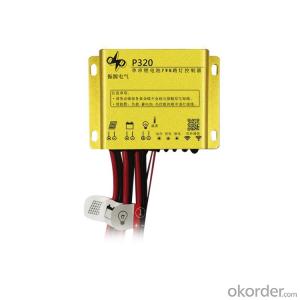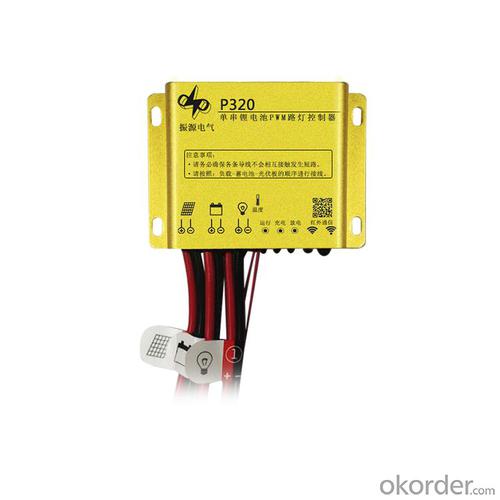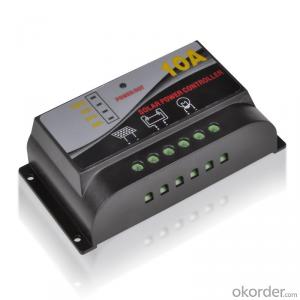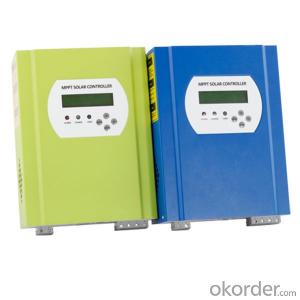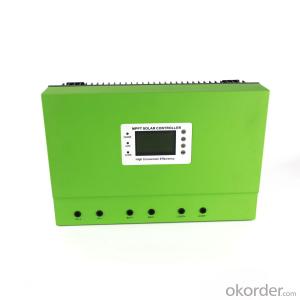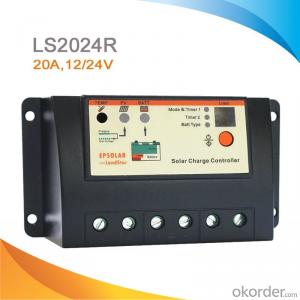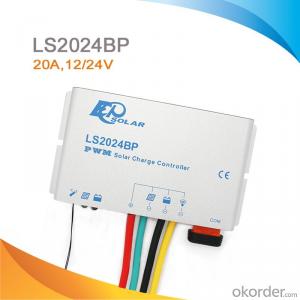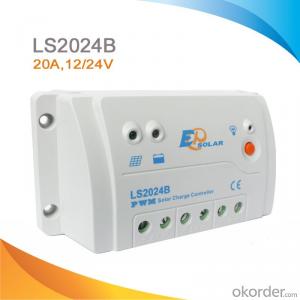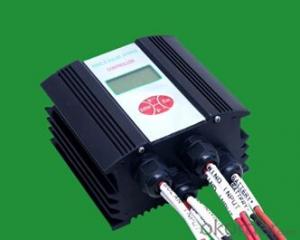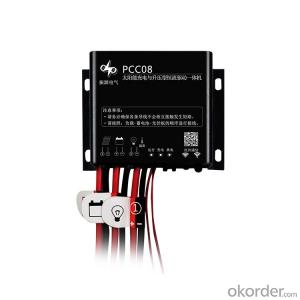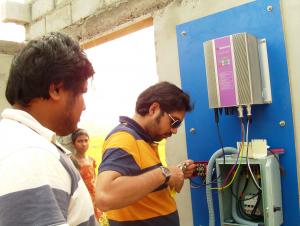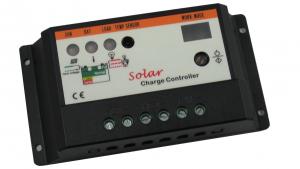Blue Sky Solar Charge Controllers 3v Lithium Battery PWM Solar Charge Controller for 20w Solar Street Light
- Loading Port:
- China main port
- Payment Terms:
- TT OR LC
- Min Order Qty:
- 1 pc
- Supply Capability:
- 20000 pc/month
OKorder Service Pledge
OKorder Financial Service
You Might Also Like
1.Product description of 3.2V/3.7V PWM Solar Charge Controller for Li-ion Battery 20W
*Specially designed for singe-string li-ionbattery system
*Parallel battery cells and easy to PACK
*No need to add protection board
*Low requirement to battery cell.
*High-usage to battery.
*Simple require to pack of battery to reduce the cost of produce battery.
2. Product features of 3.2V/3.7V PWM Solar Charge Controller for Li-ion Battery 20W
-More convenient
*Read and setting parameters by wireless remote controller
*Start via mini remote controller
*Dimming light range via mini remote controller
-High compatibility
*MPPT tracing range from 5-25V,Compatible 18V solar Panel.
*Step-up boost current drive
-Minimal power consumption
*The current consumption≤0.05W
-Intelligent management function
*According battery capacity to adjust output power
*System setting parameter to make sure lighting whole year.
3. Product image of 3.2V/3.7V PWM Solar Charge Controller for Li-ion Battery 20W
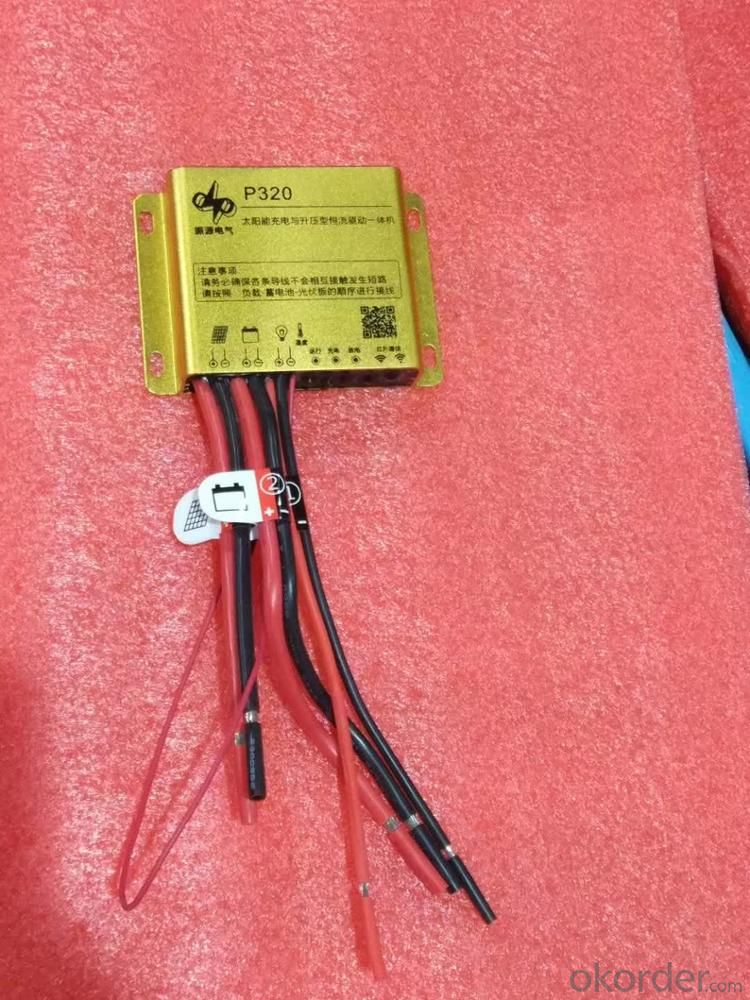
4. Range of application
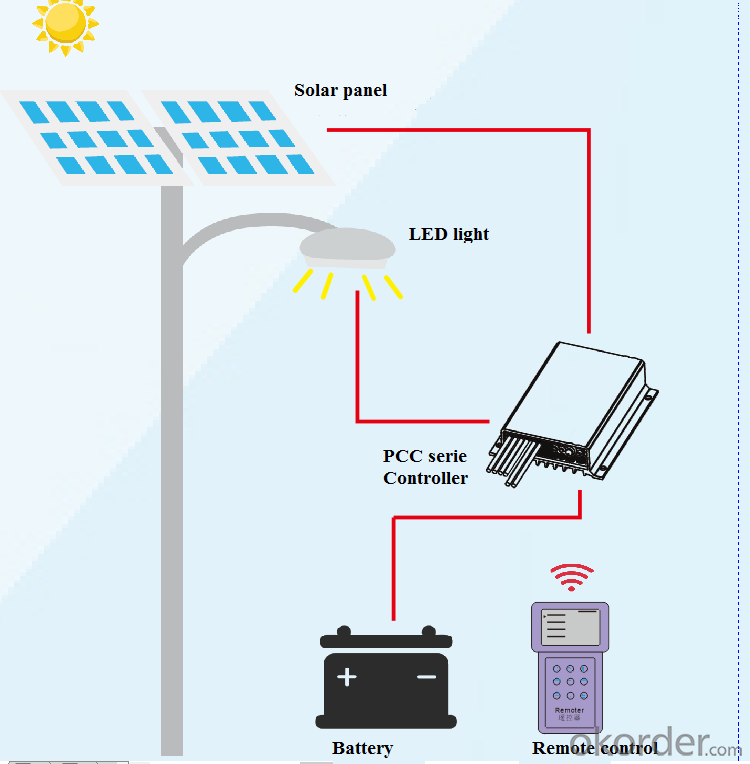
5. Drive LED efficiency
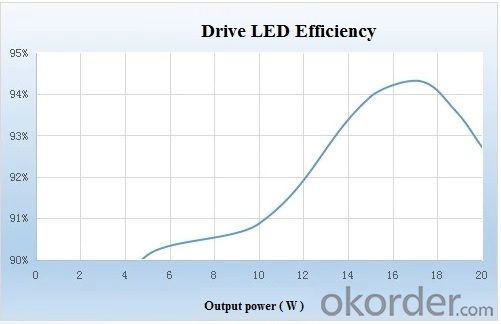
6.FAQ
Q: DO YOU HAVE ANY CERTIFICATION FOR YOUR PRODUCTS ?
A: We have ISO9001:2015,CE、RoHS certifications for all of our products.
Q: DO YOU HAVE MOQ FOR PLACE ORDER?
A: Low MOQ, 1pc for sample checking is available
- Q: Can a solar controller handle high voltage fluctuations?
- No, a solar controller is not designed to handle high voltage fluctuations. It is designed to regulate and control the voltage output from solar panels to ensure a stable and safe charging process for batteries or other devices. High voltage fluctuations can potentially damage the controller and compromise its functionality.
- Q: How does a solar controller prevent damage to the solar panels from fire hazards?
- A solar controller prevents damage to solar panels from fire hazards by continuously monitoring the voltage and current generated by the panels. If an abnormal increase in voltage or current is detected, the controller immediately cuts off the power supply to the panels, preventing any further damage or potential fire risks.
- Q: What is the maximum self-consumption of a solar controller?
- The maximum self-consumption of a solar controller refers to the amount of energy that the controller itself consumes from the solar system it is regulating. This consumption typically includes the power needed to operate the controller's circuitry, display, and connectivity features. The specific maximum self-consumption can vary depending on the model and design of the solar controller, but it is generally minimized to ensure optimal energy efficiency and maximize the amount of solar power available for usage or storage.
- Q: Can a solar controller be used in conjunction with a power inverter?
- Yes, a solar controller can be used in conjunction with a power inverter. A solar controller is designed to regulate the charging of a battery from a solar panel, ensuring that the battery is charged efficiently and preventing overcharging. On the other hand, a power inverter is used to convert the DC (direct current) power stored in the battery into AC (alternating current) power for use in powering household appliances or other electrical devices. By using a solar controller in conjunction with a power inverter, the solar controller can regulate the charging of the battery from the solar panel, while the power inverter converts the stored DC power into AC power for use. This combination allows for a more efficient and reliable system, as the solar controller ensures that the battery is charged optimally, while the power inverter provides the necessary AC power when needed. It is important to note that the compatibility between the solar controller and power inverter should be checked to ensure they are suitable for each other. Additionally, proper installation and wiring should be followed to ensure safe and effective operation of the system.
- Q: How does a solar controller handle variations in battery capacity?
- A solar controller is designed to handle variations in battery capacity by constantly monitoring the battery's state of charge and adjusting the charging parameters accordingly. The controller utilizes a built-in algorithm that calculates the charging and discharging rates based on the battery's capacity and adjusts the charging current and voltage accordingly. When the battery capacity is low, the controller will supply a higher charging current to replenish the battery at a faster rate. Conversely, when the battery capacity is high, the controller will reduce the charging current to prevent overcharging and prolong battery life. Furthermore, a good solar controller will have a battery capacity setting feature that allows the user to input the specific capacity of the battery being used. This information helps the controller accurately track the state of charge and adjust the charging parameters accordingly. In addition to handling variations in battery capacity, a solar controller also incorporates various safety features to protect the battery from overcharging, over-discharging, and other potential issues. These features include overvoltage protection, short-circuit protection, and temperature compensation, among others. Overall, a solar controller plays a crucial role in effectively managing variations in battery capacity by constantly monitoring and adjusting the charging parameters based on the battery's state of charge, ultimately ensuring optimal performance and lifespan of the battery.
- Q: Can a solar controller be used in a solar-powered drone charging system?
- Yes, a solar controller can be used in a solar-powered drone charging system. A solar controller helps regulate the charging process of the solar panels, ensuring optimal performance and preventing overcharging or damage to the batteries. By using a solar controller, the drone charging system can efficiently utilize solar energy and extend the lifespan of the batteries, making it a crucial component in a solar-powered drone charging system.
- Q: How does a solar controller handle lightning strikes or power surges?
- A solar controller is designed to protect the solar panel system from lightning strikes or power surges. It typically has built-in protection mechanisms to handle these situations. During a lightning strike or power surge, the solar controller will detect the sudden increase in voltage and current and activate its protective features. One of the main components that handle these events is the surge protector or transient voltage suppressor. This device is designed to divert the excess voltage and current away from the solar controller and the rest of the system. Additionally, the solar controller may have fuses or circuit breakers that will trip or blow in the event of a power surge or lightning strike. These protective devices are designed to interrupt the flow of electricity and prevent damage to the solar controller and other connected components. Furthermore, some solar controllers have built-in grounding mechanisms to dissipate the excess energy caused by lightning strikes. This grounding system helps to divert the energy safely into the ground, protecting the solar panel system from damage. It is important to note that while solar controllers have protective measures in place, they may not be able to completely eliminate the risk of damage from a direct lightning strike. In such cases, additional surge protection devices, like lightning arrestors or lightning rods, may be required to ensure the safety of the solar panel system. Overall, a solar controller is designed to handle lightning strikes or power surges by diverting excess energy, tripping fuses or circuit breakers, and utilizing grounding mechanisms to protect the system from damage.
- Q: Can a solar controller be used with solar string inverters?
- No, a solar controller cannot be used with solar string inverters. Solar controllers are typically used to regulate and control the charging of batteries in off-grid solar systems, while solar string inverters are used to convert the DC power generated by solar panels into AC power for use in grid-tied solar systems. These two components serve different purposes and are not compatible with each other.
- Q: How does a solar controller handle variable sunlight conditions?
- A solar controller is designed to efficiently regulate and optimize the charging process of a solar panel system. It is equipped with advanced technology to handle variable sunlight conditions effectively. One of the key features of a solar controller is its ability to adjust the charging parameters based on the available sunlight. When the sunlight intensity is high, the controller allows the solar panels to operate at their maximum power output, ensuring optimal charging of the battery bank. In contrast, during periods of low sunlight or when the panels are partially shaded, the controller actively adjusts the charging algorithm to prevent overcharging or damage to the battery. To handle variable sunlight conditions, a solar controller also incorporates a Maximum Power Point Tracking (MPPT) algorithm. This feature enables the controller to track and extract the maximum power from the solar panels even under changing sunlight conditions. By continuously monitoring the voltage and current output of the panels, the MPPT algorithm adjusts the charging voltage to ensure that the solar panels operate at their peak efficiency and deliver the maximum possible power to the battery regardless of the sunlight levels. Furthermore, many solar controllers come with built-in temperature compensation capabilities. This feature allows the controller to adjust the charging voltage according to the ambient temperature. As temperature affects the performance of the solar panels and the battery, the solar controller ensures that the charging parameters are optimized to account for these temperature variations. This helps to maintain the efficiency and extend the lifespan of the battery. In summary, a solar controller handles variable sunlight conditions by adjusting the charging parameters, utilizing MPPT algorithms to extract maximum power, and incorporating temperature compensation to optimize the charging process. With these features, a solar controller ensures that the solar panel system operates at its maximum efficiency, regardless of changing sunlight conditions, and provides optimal charging to the battery bank.
- Q: Can a solar controller be used with solar panel arrays in parallel?
- Yes, a solar controller can be used with solar panel arrays in parallel. A solar controller is designed to regulate and optimize the charging of batteries in a solar power system, regardless of the configuration of the solar panels. Whether the panels are connected in series or parallel, the solar controller will ensure that the batteries receive the appropriate charging voltage and current to maximize their efficiency and lifespan.
Send your message to us
Blue Sky Solar Charge Controllers 3v Lithium Battery PWM Solar Charge Controller for 20w Solar Street Light
- Loading Port:
- China main port
- Payment Terms:
- TT OR LC
- Min Order Qty:
- 1 pc
- Supply Capability:
- 20000 pc/month
OKorder Service Pledge
OKorder Financial Service
Similar products
Hot products
Hot Searches
Related keywords
